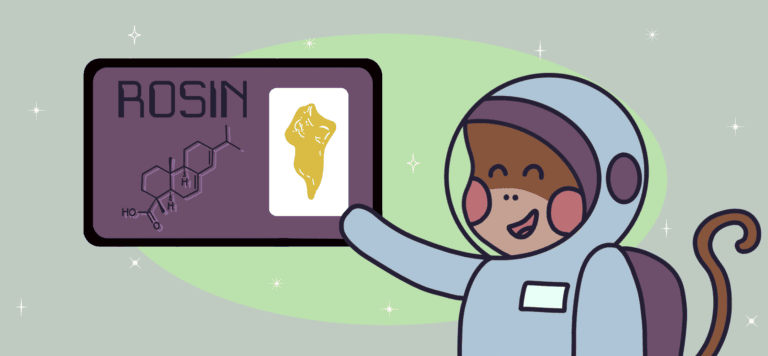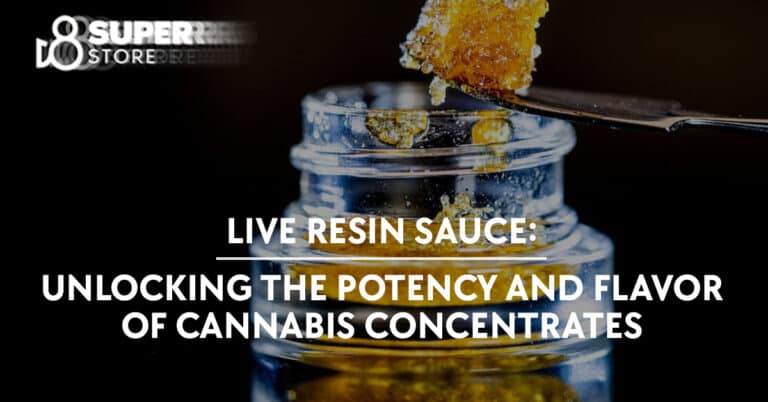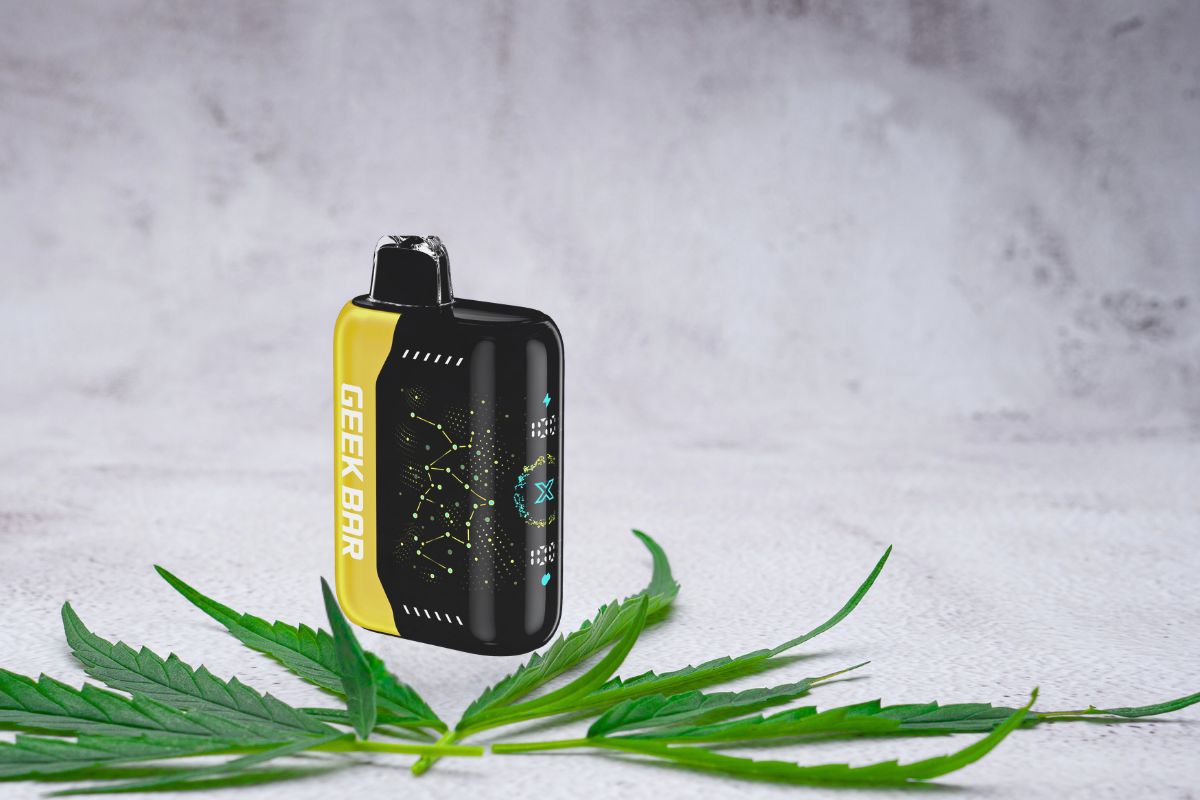What is THC-X: A Comprehensive Guide to Understanding Its Effects and Benefits
Everyone’s talking about **THC-X**, a new star in the cannabinoid sky that’s got everyone excited with its special qualities and possible benefits. Think of it like THC’s cousin—the famous ingredient in marijuana that sends you flying. But THC-X steps up with its own “X” factor, making it an outstanding newcomer. This twist gives THC-X its unique shine, standing out with its own set of traits.
Research on THC-X is still in its early stages, so a complete understanding of its psychoactive effects and potential medical benefits is not yet available. Nevertheless, it has captured the attention of the cannabis community and has sparked interest in the development of new consumption methods and products. As with any emerging substance, it is essential to consider its legality, regulation, and possible safety concerns and side effects.
- THC-X is a recently discovered compound related to THC, but with a different molecular structure.
- The effects and potential medical benefits of THC-X are still under investigation.
- This new cannabinoid has prompted interest in consumption methods, products, and legal regulation.
Understanding THC-X
Chemical Structure
In my research, I came across THC-X, a synthetic cannabinoid derived from cannabis plants. It is a man-made compound with effects similar to tetrahydrocannabinol (THC), but not the same chemical structure. As a result, it acts on the endocannabinoid system and can cause psychoactive effects, similar to THC. However, it’s important to recognize that its composition is distinct from naturally occurring cannabinoids like THC and CBD1.
Relation to Other Cannabinoids
THC-X is just one of the many cannabinoids discovered in the cannabis plant family. I’m familiar with several notable cannabinoids, such as THC, CBD, THCa, and delta-8. Each of these cannabinoids interacts with our body’s endocannabinoid system and has varying effects on CB1 receptors, which are responsible for the euphoric sensation.
THC, or delta-9-tetrahydrocannabinol, is the well-known psychoactive compound found in cannabis that induces a “high” sensation. On the other hand, CBD (cannabidiol) is non-psychoactive, providing potential medicinal benefits without the intoxicating effects. THCa (tetrahydrocannabinolic acid) is the acidic precursor to THC and gradually converts into THC when exposed to heat or sunlight3.
Delta-8, another cannabinoid, is less potent than THC but still mildly psychoactive and may provide potential therapeutic benefits4. Other less common cannabinoids include CBN (cannabinol), THCV (tetrahydrocannabivarin), and THCP (tetrahydrocannabinol perasetate). Each of these compounds can have different effects and benefits. For instance, delta-10 is another psychoactive cannabinoid5, while CBN is known to be mildly psychoactive or even sedative6.
Though it shares similarities with these other cannabinoids, THC-X has its own unique properties, and further research is needed to fully understand its potential uses and effects.
Psychoactive Effects and Experience
Euphoria and Relaxation
When I consume THC-X, it interacts with my endocannabinoid system, specifically targeting CB1 receptors. This interaction results in psychoactive effects, including feelings of euphoria and relaxation. These effects are similar to those experienced when consuming other cannabinoids like Delta-9 THC, which is primarily found in marijuana. One notable difference, however, is that THC-X is a synthetic cannabinoid, meaning it’s man-made and not found naturally in cannabis plants.
The activation of CB1 receptors in my brain can also provide relief from pain, inflammation, and nausea. This makes THC-X potentially beneficial for people dealing with these issues, although further research is necessary.
Comparing THC-X Effects with Delta-8, Delta-9, and Delta-10
Let’s compare THC-X to other popular cannabinoids, such as Delta-8, Delta-9, and Delta-10:
- Delta-8: Known for providing mild psychoactive effects, Delta-8 is often described as a more manageable version of Delta-9 THC. It has been reported to reduce anxiety and pain, stimulate appetite, and even combat nausea.
- Delta-9: The primary psychoactive component in marijuana, Delta-9 induces more potent psychoactive effects than Delta-8 and THC-X. While it can provide relief from pain and inflammation, it’s also been known to produce side effects like paranoia and anxiety in some users.
- Delta-10: A newly discovered cannabinoid with limited research, Delta-10 is believed to produce mild psychoactive effects. There’s not much information available on Delta-10, but it’s thought to provide a clear-headed, energetic high.
Between all these cannabinoids, THC-X stands out as a synthetic compound that interacts with the same receptors in my brain as the other naturally occurring cannabinoids. My experience with THC-X may be similar to consuming Delta-9 THC but, due to its synthetic nature, further studies and understanding of its long-term effects are necessary.
Medical and Therapeutic Benefits
Pain Relief and Inflammation
In my research, I discovered that THC-X has the potential to alleviate chronic pain and reduce inflammation. One of the main reasons people use medical marijuana is for pain management, especially for conditions like arthritis or multiple sclerosis. THC-X, as a compound found in cannabis, seems to contribute significantly to these pain-relieving properties. Furthermore, it also appears to have anti-inflammatory effects, which can help reduce swelling and discomfort in various parts of the body.
Sleep and Insomnia
I found that another potential therapeutic benefit of THC-X is its ability to improve sleep and treat insomnia. Users often report feeling more relaxed and able to fall asleep quicker after consuming products containing THC-X. This compound may interact with the body’s endocannabinoid system to help regulate the sleep-wake cycle, making it easier to establish a consistent sleep pattern. If you struggle with sleep issues, THC-X might be worth considering.
Anxiety and Stress
Lastly, I learned that THC-X may also have potential benefits for individuals dealing with anxiety and stress. Just like with sleep issues, THC-X could help manage anxiety symptoms by interacting with the body’s endocannabinoid system. While it may not completely cure anxiety disorders, incorporating THC-X into a comprehensive treatment plan could potentially provide a more balanced and calm mental state. More research is needed to fully understand THC-X’s effect on anxiety and stress, but preliminary findings are promising.
Please note that the information presented here is not intended to replace the advice of a healthcare professional. Always consult with a doctor before using any new treatments or supplements for your health.
Consumption Methods and Products
As someone who enjoys learning about the diverse ways to consume THC-X, I’ve explored several consumption methods and products. In this section, I will cover several popular methods, such as edibles, vaping, and pens, as well as tinctures and topicals.
Edibles
When it comes to edibles, THC-X can be found in a variety of forms, such as gummies, cookies, and brownies. I enjoy these products because they discreetly provide the desired effects of THC-X. In my experience, it’s essential to start with a low dose and wait for it to take effect before consuming more. Although edibles may take longer for the effects to kick in compared to other methods, I find that they generally offer a longer-lasting experience.
- Gummies: These are one of the most popular and convenient forms of THC-X edibles. They come in various flavors, and I appreciate the precise dosing they offer.
Vaping and Pens
Vaping THC-X provides a faster, more efficient way to feel its effects in comparison to edibles. Personally, I find that vaping delivers a smoother experience without the harshness of smoke, making it a popular choice for many consumers.
- Pens: THC-X pens provide a portable and discreet way to consume this product. These pens use cartridges pre-filled with THC-X oil and offer various potency levels and flavors.
- Cartridges: I appreciate the convenience of THC-X cartridges, as they are easily interchangeable and typically available in different strain options for a customized experience.
Tinctures and Topicals
For those seeking an alternative to inhalation or oral consumption, tinctures and topicals can be a more discreet and targeted approach to THC-X application.
- Tinctures: Drops placed under the tongue or added to food and beverages can provide consistent dosing with a tincture. In my opinion, this method allows for a more controlled way of consuming THC-X.
- Topicals: Applying THC-X infused creams, balms, or lotions directly to the skin may help address localized issues. Personally, I find topicals especially beneficial for targeted relief and appreciate the non-intoxicating effects they provide.
It’s worth noting that when using any of these THC-X products, individual experiences may vary, and it’s essential to consult a professional if in doubt or if facing an upcoming drug test.
Legality and Regulation
FDA Oversight
From my understanding, THC-X is an unexplored and potentially new tetrahydrocannabinol (THC) compound that may exist in cannabis products. As a result, the FDA currently exercises oversight on cannabis and cannabis-derived products like CBD and THC, including regulating marijuana for recreational use or exploring potential health benefits. The FDA considers Delta-9 THC an illegal substance and seeks to regulate its presence in hemp products.
I am aware that the FDA’s jurisdiction extends to ensuring the safety and efficacy of products. When it comes to cannabis-derived products, their primary interest rests in protecting public health through quality control measures. Unfortunately, due to the scarcity of information about THC-X, it remains unclear whether it falls under the FDA’s regulatory oversight.
State Regulations
When discussing state regulations, the legality of cannabis products like marijuana, THC, and CBD varies immensely from state to state. In some states, medical or recreational use of marijuana is legal, allowing for the distribution and sale of hemp-based products. However, other states still regard marijuana possession and use as illegal, leading to strict regulations on the distribution and sale of hemp-based, THC, and CBD products.
Given the uncertainty surrounding THC-X, its legal status in any given state hinges on clarification about its chemical composition and effects. Any potential regulation will depend on how closely THC-X aligns with existing cannabis compounds, such as illegal Delta-9 THC or widely accepted CBD products.
International Perspectives
The international perspective on THC-X is just as uncertain as the domestic one. Different countries have their unique legislation regarding cannabis products, with some allowing for recreational or medical marijuana use. Other countries, however, deem any cannabis use, possession, or sale illegal.
THC-X, as an unexplored compound, would have to be carefully analyzed within the context of a country’s existing laws and regulations. Each nation will likely base its regulatory position on whether THC-X has any psychoactive properties or potential health benefits, and how it aligns with currently controlled substances. Considering the variability in international perspectives, legalities for THC-X could vary considerably worldwide.
Safety and Side Effects
Drug Interactions
As a close relative of tetrahydrocannabinol (THC), THC-X might have potential drug interactions, similar to THC. If I am using medications that affect the central nervous system such as sedatives or antidepressants, it’s crucial to consult my healthcare provider before using THC-X to avoid any harmful effects.
Potential Risks
Although the information on THC-X is limited, I can assume it may pose some risks similar to THC usage. Common side effects that I might experience are dizziness, dry mouth, red eyes, and fatigue. Also, THC-X has been associated with more severe symptoms such as anxiety, paranoia, and other psychiatric issues.
THC-X may also appear on a drug test, even though it’s not the same as THC. This could be a concern for me if I am subject to routine drug screenings. It’s essential to be aware that drug tests are not always reliable and false positives can happen.
Precautions
If I am considering trying THC-X, there are some precautions I must take. First, it’s crucial to ensure that I understand the legality and safety of the product in my area. In addition to the potential side effects mentioned earlier, I need to keep in mind the possible risks when combining it with other substances.
Furthermore, despite the potential health benefits such as reduced nausea and vomiting, I should approach THC-X with caution as not much information is available regarding its long-term effects.
Lastly, if I suffer from any pre-existing health conditions or am taking medications, consulting my healthcare provider is necessary before trying THC-X to ensure my safety and avoid any complications.
Frequently Asked Questions
How does THC-X affect the body?
THC-X is a newly discovered cannabinoid with a chemical structure similar to THC, which is known for its psychoactive effects. Although information on THC-X is still emerging, it is believed to interact with the body’s endocannabinoid system in a similar manner to other THC compounds. However, the exact effects and benefits of THC-X are currently not well-understood, and more research would be needed to provide a clear understanding.
What are the differences between THC-X and other cannabinoids?
As a new cannabinoid, THC-X is not as widely studied as other cannabinoids like THC, CBD, and the recently popular Delta-8 and Delta-10. One major distinction between THC-X and other cannabinoids is the presence of three different esters: Acetoacetic, Butyric, and Isovaleric. These esters are what make up the unique chemical structure of THC-X. Further research is necessary to determine the specific effects and benefits of THC-X compared to other cannabinoids.
Is THC-X more potent than other forms of THC?
The potency of THC-X is not entirely clear at this point due to the limited amount of research available. As with any cannabinoid, individual experiences with THC-X may vary widely based on factors such as dosage, tolerance levels, and metabolism. It is important to approach any new cannabinoid with caution and start with a low dose to see how it affects your body before increasing the amount.
What are the legalities surrounding THC-X?
Given that THC-X is a newly discovered cannabinoid, its legal status is not entirely clear. The legalities surrounding THC-X may vary depending on where it is derived from and the specific jurisdiction’s regulations on cannabis products. It is essential to become familiar with the laws and regulations in your area when considering experimenting with THC-X or any other cannabinoid.
How does THC-X compare to Delta-8 and Delta-10?
As a newly discovered cannabinoid, there is not enough information available to accurately compare THC-X to Delta-8 and Delta-10. Both Delta-8 and Delta-10 are also THC compounds with slightly different chemical structures than the traditional Delta-9 THC. While Delta-8 and Delta-10 have become popular for their unique effects and benefits, it is still too early to determine how THC-X compares to these other forms of THC.
What is the scientific background of THC-X?
THC-X is a new addition to the THC category of cannabinoids, and as such, its scientific background is still limited. While its chemical structure features three unique esters, the exact effects, benefits, and potential uses for THC-X have yet to be fully explored. As research and understanding of this newly discovered cannabinoid progresses, more information regarding its scientific background and applications should become available.
Footnotes
- Mayo Clinic Labs – THCX Overview: Delta-8 and Delta-9-Carboxy-Tetrahydrocannabinol (THC) ↩
- Cannabis Business Times – What is Delta-10-THC and How is it Different From Delta-8 or Delta-9? ↩
- LabRoots – CBN: The Sedative Cannabinoid ↩







